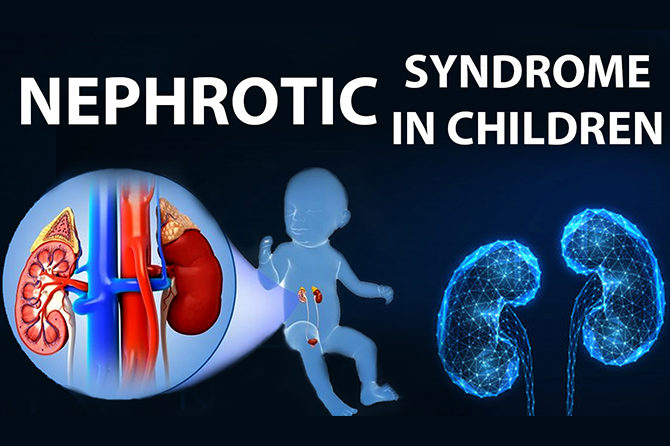Nephrotic condition syndrome causes the kidneys to release a lot of protein into the urine. This can cause various concerns, including swelling of body tissues and an increased risk of infection. Although nephrotic syndrome can affect anyone at any age, it is most commonly diagnosed in children between the ages of two and five. It is more common in boys than in girls. Every year, about 1 in every 50,000 children is diagnosed with the disease. It appears to be more common in families with a history of allergies or those with Asian ancestry, though the reason for this is unknown. Heavy proteinuria is a defining feature of Nephrotic syndrome in children. Hypoproteinemia and generalized oedema result as a result of this. When small structures in the kidney called glomeruli stop working correctly, protein leaks into the urine, causing nephrotic syndrome. In most situations, the cause of Nephrotic Syndrome is unknown.
Minimal change disease (kidneys appear normal or nearly normal if a tissue sample is studied under a microscope) is the most common cause in children. Still, the specific cause of the condition known as minimal change is unknown. Most children have minimal change disease in early childhood, and the ailment goes into remission spontaneously during adolescence. In some circumstances, immune system problems, infections, or diseases like cancer and diabetes can affect the glomeruli. Nephrotic syndrome can be caused by an allergic reaction to food, the use of certain legal and illegal medicines, or even obesity in some cases.
Diagnosing nephrotic syndrome
In the morning, children’s eyes typically swell. Frequently, this is the first sign. The child’s wrists, feet, and abdomen may enlarge throughout the day. Additionally, children are fatigued, irritable, have a decreased appetite, and appear pale.
Diagnostic tests
Urine sample tests ( Dipstick test and Sulphosalicylic acid test)
Physical Exam
A blood test
Kidney biopsy
Ultrasound of the Kidney

Managing nephrotic syndrome
Several drugs that modulate the immune system, remove excess fluid, and lower blood pressure are used to treat idiopathic pediatric nephrotic syndrome. Steroids are the most common treatment for nephrotic syndrome; however, other medications may be employed if a child develops serious adverse effects. Most children experience relapses until they are in their late teens, and when they do, they require the use of steroids. A childhood kidney expert (pediatric nephrologist) may be referred to the child for tests and therapy.
After the first treatment, many children relapse, and doctors treat them with a shorter course of corticosteroids until the condition goes into remission. Multiple relapses are common in children, although they usually recover without long-term renal impairment. A health care practitioner may administer alternative medications that suppress immune system activity if a kid has repeated relapses or does not respond to treatment. These drugs stop the body from producing antibodies that can harm kidney tissue.
Resources
National Kidney Foundation
Children with Chronic Kidney Disease: Tips for Parents
https://www.nhs.uk/conditions/nephrotic-syndrome/
![]()


